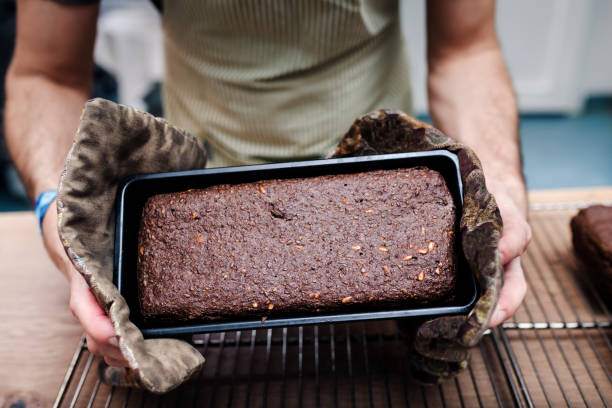Baking pans are essential kitchen tools for any home baker, whether you're a novice or an expert. Buying wholesale baking pans can be a great way to get quality cookware at an affordable price. In this article, we'll discuss the advantages of buying wholesale baking pans and provide tips for finding the right ones for your needs.
Cooking with good quality bakeware is an important part of making consistent results in the kitchen. Wholesale baking pans offer bakers of all experience levels access to professional-grade equipment without breaking the bank. Not only do these pans last longer than cheaper alternatives, but they often come with features that make baking easier and more enjoyable.
Whether you're stocking up your own kitchen or shopping for gifts, there are plenty of reasons to consider buying wholesale baking pans. Let's take a closer look at some of the benefits and tips for finding the perfect set of pans for you.
Blog Series: A Beginner's Guide for Hotel Pan Cooking
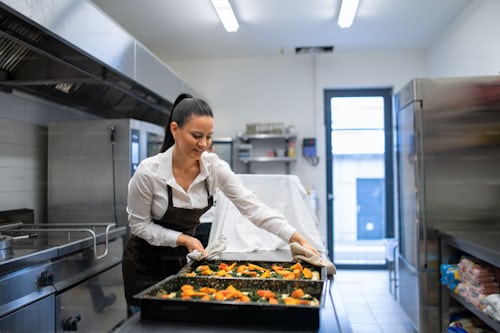
Definition
Wholesale baking pans are large metal containers used to bake food. They come in many shapes and sizes, from large rectangular sheets to round cake tins. The pans can be made of aluminum, stainless steel or non-stick materials. Wholesale baking pans are often used by professional bakers as well as home cooks.
The type of pan chosen depends on the recipe being made, as some recipes require a specific shape and size of pan. For example, a round cake tin is required for making a traditional round birthday cake. Other items such as muffins, cupcakes and brownies can be baked in the same type of pan.
Wholesale baking pans are available in sets with different shapes and sizes included in one package. These are ideal for bakers who need to bake several items at once or who want to purchase multiple types of pans but not have to buy them individually. This is an economical way to purchase multiple pieces at once without having to pay full price for each item separately.
Different Types Of Pans
There are many different types of pans available for baking. Each type of pan has its own unique characteristics that make it suitable for specific tasks. The most common type of baking pan is the sheet pan, which is usually used for cookies, cakes, and other baked goods. Sheet pans come in a variety of sizes and shapes, and some have non-stick surfaces for easy cleanup.
Another popular type of baking pan is the cake pan. Cake pans are often round or square, and they come with removable bottoms so that the cake can be easily removed after baking. Bundt pans are also popular; these pans create cakes with unique designs on their sides.
Muffin tins are perfect for making individual muffins or cupcakes, while tart pans can be used to create pies and tarts. Specialty pans such as springform pans and fluted tartlet molds are also available to give an extra special shape to your baked goods.
No matter what kind of baking you want to do, there's sure to be a perfect pan to fit your needs. There's something for everyone when it comes to baking pans - all you need to do is find the right one!
Blog Series: A Beginner's Guide for Pan Asia Wholesale
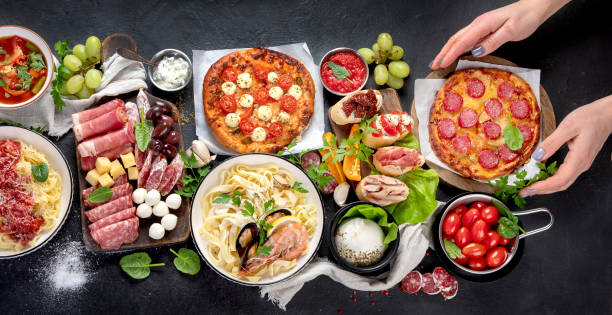
Materials Used In Manufacturing Baking Pans
Most baking pans are made from a variety of materials. Aluminum is the most common material used for baking pans as it conducts heat quickly and evenly. It also has excellent durability and is rust-resistant. Steel is also commonly used to make baking pans as it provides a non-stick surface, making it easier to remove baked goods from the pan. Non-stick coatings are often applied to baking pans made of steel, aluminum or other metals in order to reduce sticking and make cleaning easier.
Glass and ceramic baking dishes can be used for items that require longer cooking times or need to be cooked at lower temperatures than metal pans. These materials provide a good level of insulation and can help retain moisture while cooking delicate items such as cakes. Silicone molds are another popular choice for baking, as they offer flexibility and non-stick surfaces that make them easy to clean and store away when not in use.
Finally, some bakers prefer using wooden boards or parchment paper on their baking sheets to provide an extra layer of insulation between the pan and the food they’re cooking. No matter which material you choose, having the right tools makes all the difference when it comes to successful baking results!
Blog Series: A Beginner's Guide for Wholesale Cake Pans
Common Shapes And Sizes
Wholesale baking pans come in a variety of shapes and sizes. Common shapes include round, square, rectangular, heart-shaped and oval. Round pans are ideal for cakes and pies while square pans are great for brownies and bar cookies. Rectangular pans are perfect for sheet cakes and jelly rolls. Heart-shaped pans make unique Valentine's Day desserts while oval pans can be used to create specialty breads and loaves.
The size of the pan will depend on the desired outcome. For example, if you're baking a layer cake, you'll need two 8-inch round cake pans or one 9x13 inch rectangular pan. If you're making cupcakes, you'll need a 12-cup muffin tin. You can also find mini muffin tins which are perfect for bite-sized treats like miniature cupcakes or mini cheesecakes.
No matter what shape or size your baking project requires, there's sure to be a wholesale baking pan that fits the bill!
Blog Series: A Beginner's Guide for Wholesale Aluminum Pans
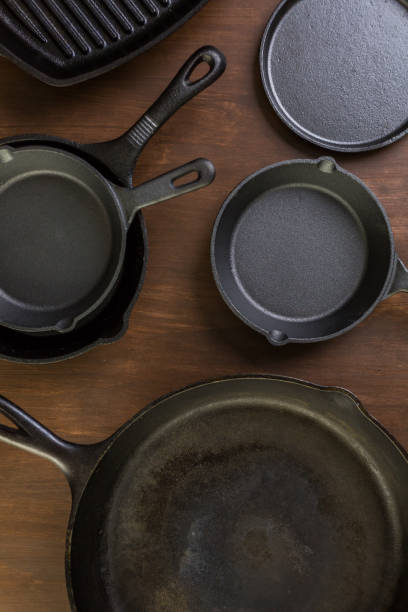
Cost-Effectiveness Of Buying In Bulk
Buying in bulk can be a great way to save money on baking pans. Not only does it allow for greater convenience, but the cost per item is often significantly lower than buying the same items individually. This makes bulk purchases a viable option for those who need large quantities of baking pans.
Price comparison between individual and bulk purchases is key to finding the best deal. It's important to consider all costs associated with each purchase and compare them side-by-side before making a decision. Shipping and taxes should also be factored into this equation, as these costs can often add up quickly if not considered.
When done right, bulk purchasing of baking pans can be an incredibly cost-effective way to stock up on supplies. Using price comparison websites or visiting multiple stores helps ensure that customers are getting the best deal possible on their purchase. Ultimately, shopping around and researching prices is essential for ensuring that buyers get the most bang for their buck when buying wholesale baking pans.
Care And Maintenance Tips
To keep your baking pans in good condition and ensure they last for many years, proper care and maintenance is essential. Start by reading the manufacturer's instructions, which will tell you if the pan needs to be seasoned or not. Most pan surfaces should be lightly greased before use and then wiped down with a dry towel afterwards. If your pan has a non-stick coating, avoid using metal utensils and opt for plastic or wooden tools instead.
Handwashing is preferred over dishwashers when cleaning baking pans as harsh detergents can damage the surface of the pan. Use warm soapy water and a soft sponge to gently scrub off any food residue. Don’t forget to rinse off all soap residue before drying with a clean cloth. To prevent rusting, it’s best to store your pans in a cool, dry place away from direct sunlight.
Regular cleaning and preventive maintenance can help extend the life of your baking pans and keep them looking their best for years to come.
Blog Series: A Beginner's Guide for Wholesale Metal Pans
Ensuring Quality And Durability
It is important to ensure that the baking pans you purchase are of the highest quality and durability. There are a few key factors to consider when selecting your wholesale baking pans. First, check the material that the pans are made from. Quality baking pans should be constructed out of heavy-gauge steel or aluminum and should have a nonstick finish for easy cleaning.
Furthermore, examine the thickness of the pan and make sure it has been reinforced with ridges or channels to prevent warping over time. Additionally, look for any type of warranty offered as this can provide extra assurance that you are getting a high quality product.
The second factor to consider when selecting your wholesale baking pans is the design and construction of each piece. Look for sturdy handles that will allow you to safely move the pan in and out of an oven without risking injury. Also, double check that all rivets and seams are securely fastened so that the heat does not escape during use.
Lastly, make sure each pan has a lip or flange around its edges for ease of handling; this will also help keep food from spilling over onto your countertop or oven floor while transferring it in and out of a hot oven.
When choosing your wholesale baking pans, it's important to remember these key points: material, thickness, reinforcement details, warranty information, robust handles, secure rivets and seams, plus lips or flanges around the edges. Doing so will guarantee you get durable items that will last for years with proper care and maintenance.
Blog Series: A Beginner's Guide for Pan Wholesale Market
Shipping And Logistical Considerations
Having considered the risks associated with purchasing wholesale baking pans, it's now time to discuss shipping and logistical considerations.
When ordering in bulk, you have to consider the cost and convenience of shipping. If you're buying from an overseas supplier, you'll likely need to factor in additional shipping charges. It's also important to check delivery times and make sure that your supplier can get the baking pans to you on time. Additionally, investigate whether or not the supplier offers insurance for damaged or lost items during transit.
It's also beneficial to look into any storage requirements for the baking pans before making a purchase. Consider whether or not you have adequate space for storing them until they're needed and if you will need additional packaging materials such as boxes or bubble wrap. Finally, take into account any additional costs associated with storing the pans over time, such as rent or climate control equipment.
These are all factors that should be taken into consideration when ordering in bulk quantities of baking pans. Understanding these details ahead of time can help ensure a successful purchase and make sure that your order arrives safely and on time.
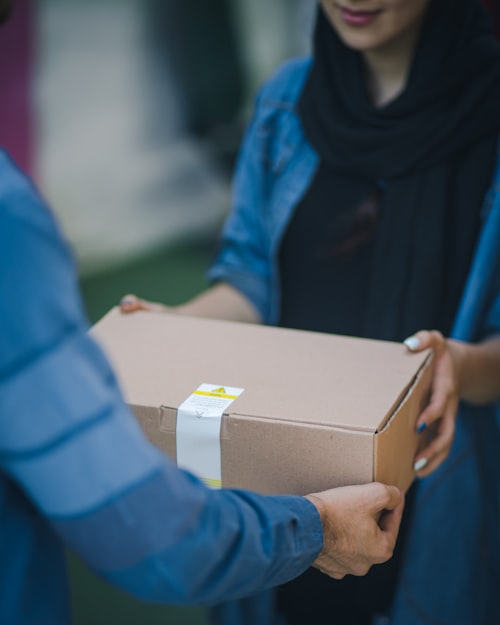
Other Uses For Baking Pans
Baking pans don't just have to be used for baking. There are a variety of other uses for them that can make life easier and save time in the kitchen. For instance, they're perfect for roasting vegetables. Simply toss some cut-up veggies with olive oil, spices, and herbs in a baking pan then pop it in the oven. Roasting vegetables this way ensures even browning and delicious flavor.
When you need to whip up a quick meal for your family, baking pans can come in handy. You can layer ingredients like meat, potatoes, and vegetables all in one pan and bake them together quickly. This is also a great way to use leftovers - add whatever you have on hand to the pan with some seasonings and cheese if desired and bake until everything is hot through.
Baking pans also make great serving pieces at parties or potlucks. Serve up tacos or sandwiches buffet style on a large baking sheet with all the toppings lined up neatly beside it. It's an easy way to feed a crowd fast!
Blog Series: A Beginner's Guide for Gelato Pan Wholesale
Conclusion
In conclusion, buying wholesale baking pans is a great way to stock up and save money. It's important to consider the different types of pans and materials used in manufacturing them, as well as the various shapes and sizes available. I've found weighing the benefits of purchasing in bulk against shipping and logistical considerations can help when choosing the right wholesale supplier.
As a baker, it's also important to understand best practices for buying in bulk which will help minimize waste and maximize savings. Finally, don't forget that baking pans can be used for more than just baking - they can also be used for cooking or even craft projects. Buying baking pans in bulk is an economical way to get what you need without sacrificing quality.
